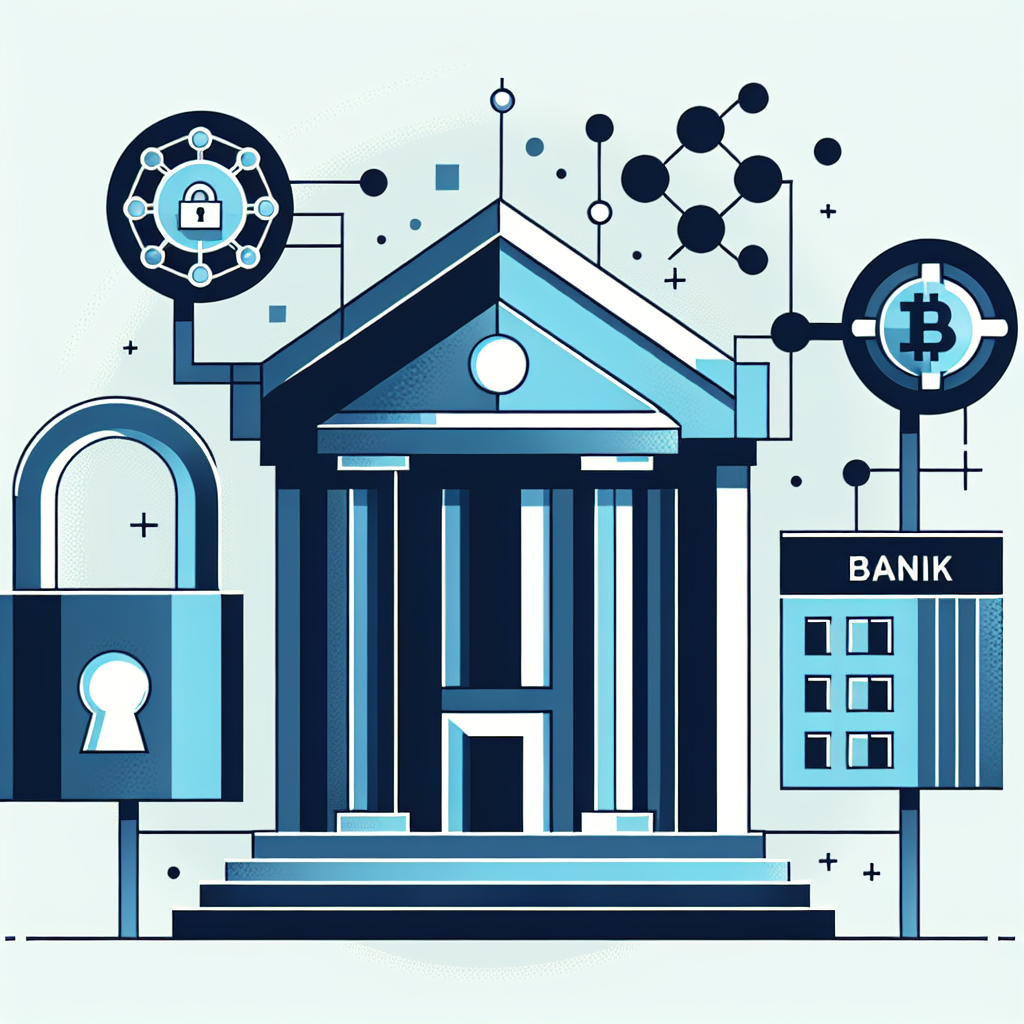Introduction to Smart Contracts and Fraud Reduction
In today’s digital age, the financial industry is constantly seeking innovative solutions to reduce fraud and enhance transaction security. One of the most promising advancements in this space is the implementation of smart contracts. But what exactly are smart contracts, and how do they contribute to reducing fraud in financial transactions?
Smart contracts are self-executing contracts where the terms of the agreement are written directly into lines of code. These contracts reside on a blockchain, allowing for transparent, irreversible, and precise execution of agreements. Because they can automate many processes that traditionally require manual input, they significantly reduce the likelihood of human error and deliberate fraud.
What is a smart contract? A smart contract is a digital agreement executed through computer code on a decentralized blockchain, automatically enforcing the terms of the contract without the need for intermediaries.
One of the core features of smart contracts that enhances security is their ability to operate autonomously, meaning they only execute when specific conditions are met. This reduces the risk of fraud because the contract’s execution is not dependent on individuals who might act with malintent.
- Autonomy: Smart contracts remove the need for third-party intervention, thus reducing the opportunities for fraud via manual tampering.
- Transparency: As every transaction and change is recorded on the blockchain, all parties involved have a complete view of the contract’s history and performance.
- Security: The cryptographic nature of blockchains ensures that once the contract’s code is deployed, it cannot be altered, enhancing security and reliability.
- Efficiency: With no manual processing needed, transactions are completed faster, reducing the window for potential fraud attempts.
The introduction of decentralized finance (DeFi) has amplified the importance of smart contracts, as they facilitate secure, direct exchanges between parties without the need for traditional banking systems. This is crucial in regions like Africa, where access to standard banking can be limited, and where Jara is making significant strides with its $JARA token to bridge global capital with African assets, thus fostering a more inclusive digital economy.
“Jara – Unlocking the Future to Africa’s Crypto Ecosystem.”
Moreover, smart contracts bring an added layer of protection through mechanisms like multi-signature processes, as highlighted by blockchain experts. By requiring multiple parties’ approval before executing transactions, they mitigate the risk of single-point failures and unauthorized access.
Utilizing these automated mechanisms plays a pivotal role in reducing fraud, making smart contracts a cornerstone technology in preventing fraudulent activities and securing financial transactions. As smart contract adoption grows, its implications are far-reaching, not just in reducing fraud but also in fostering innovation across various sectors.
The integration of smart contracts marks a significant move towards an automated and fraud-free financial ecosystem. This is why understanding their capabilities and limitations is vital for businesses and individuals seeking more secure, transparent financial transactions.
Key Features of Smart Contracts in Fraud Prevention
Multi-signature Authentication
In the digital era, where financial transactions frequently cross borders, smart contracts have become essential tools in combating fraud. At the core of these efforts is multi-signature authentication.
What is multi-signature authentication in smart contracts? Multi-signature authentication is a security protocol that requires multiple parties to approve a transaction before it can proceed, providing an additional layer of protection against unauthorized activities.
This feature functions much like the dual controls you might see in traditional banking—only more advanced. Multiple signatories are needed to authorize the movement of funds or execution of a contract. This not only mitigates the risk posed by a single point of failure but also enhances the integrity of the system by ensuring collaborative decision-making. Imagine if one party could flip through the pages of a contract, sign it without checks, and send it off—risky, right? Multi-signature authentication prevents this by making sure all critical stakeholders have a say.
By incorporating this feature, platforms like Jara are leveraging technology to ensure transactional security. Jara’s role within Africa’s financial landscape is particularly noteworthy; they’re pioneering a shift towards more secure economic practices by integrating such advanced mechanisms in their digital asset infrastructure. Learn How Automation and Blockchain Enable Trustless Agreements to guard against fraud.
For instance, a transaction involving large assets, perhaps tokenized real estate like the $6 billion Lagos airport project, could require multiple approvals before funds transfer. This way, fraudsters can’t operate alone or without collusion from multiple validated parties.
Automated Escrow Services
Another groundbreaking feature of smart contracts in fraud prevention is the automated escrow service. This mechanism ensures that funds are held in trust according to predefined conditions agreed upon by both parties. The beauty of this system is that it eliminates the need for an intermediary, all thanks to the transparent, self-executing nature of smart contracts.
The benefits are substantial. Consider a scenario where a digital asset exchange takes place. With automated escrow, funds are released only when both parties meet agreed terms, offering peace of mind and ensuring fair play. Companies like Opnbx.ai have implemented this feature to prevent potential losses. They secure transactions, thereby enhancing trust in the ecosystem. Discover How Smart Contracts Are Improving Transparency and see how escrow functionalities add layers of security.
Time-locked Transactions
With smart contracts, control doesn’t end at multi-signatures. Time-locked transactions are an ingenious tool to prevent fraud, introducing regulated pacing into funds flow. By enforcing a mandatory wait period, these time locks offer a cushion for dispute resolutions or the detection of anomalies.
What are time-locked transactions? Time-locked transactions in smart contracts are designed to delay financial transfers until a pre-set time or condition is met, adding another layer of security against fraud.
This added security means high-value transactions can be closely monitored, and if anything seems amiss, stakeholders have ample opportunities to intervene before transactions finalize. For instance, a blockchain applied in such a manner could drastically cut down cases of premeditated fraud attempts targeting quick, high-stake exchanges.
Consider how this extends to industries heavily reliant on financial integrity. If a banking institution leverages time-locked transactions, they add a critical buffer window for error correction—a boon for regulatory compliance and operational transparency. Such measures can significantly inhibit activities that otherwise mar the digital financial landscape. As industries revolutionize their operations through smart automation, time locks shine by curbing fraud with precision.

Automation Enhancing Transaction Security
Automated Escrow Systems
Automated escrow systems built into smart contracts offer a robust mechanism to ensure that transactions are executed only when the contractual conditions are fully met by all parties involved. This method significantly enhances the security of transactions by acting as a neutral agent that holds funds until the exact criteria are satisfied, safeguarding against potential fraudulent activities.
What is an escrow system? An escrow system is a financial arrangement where a third party holds and regulates the payment of funds required for two parties involved in a given transaction. This system ensures that funds are only released when both parties have fulfilled their contractual obligations.
This automated system acts much like a mediator in traditional transactions. Imagine hiring a painter for your home. Instead of paying upfront, you deposit the payment into escrow. The painter only receives the money once the job is satisfactorily completed, ensuring you get the service you paid for without the risk of losing your funds.
In the digital landscape, the same principle applies. With smart contracts, this process becomes even more secure and efficient. These contracts automate the escrow system, making the entire process faster and eliminating the need for a middleman, thereby reducing costs.
Mitigating Fraud Risks with Automation
The inherent transparency of blockchain technology further supports the security of automated escrow systems. Every transaction and its conditions are securely stored on the blockchain, visible to all involved parties, and immutable. This transparency means that all parties can verify the transaction conditions, reducing the chance of misinterpretation or manipulation, thus minimizing fraud risk.
Moreover, by eliminating intermediary interference, automated escrow systems significantly reduce the potential for human error and deception. Consider the unfortunate yet all-too-common bank currency transfer errors—smart contracts diminish such risks by ensuring that all protocol follows predefined rules without deviation.
“Automation within smart contracts offers unparalleled security by ensuring all transactional conditions are verifiably met before the release of funds, eliminating fraudulent practices.” – Blockchain Expert
Advantages of Using Automated Escrow Systems
- Cost Efficiency: By removing the need for third-party mediation, both parties save on transaction fees usually required by banks or other financial institutions.
- Time Savings: The automation of fund transfer processes leads to faster transaction times, since there is no need to wait for the processing of traditional intermediaries.
- Enhancement of Trust: Ensures all contract terms are objectively verified before release of funds, fostering trust between parties who may have no prior relationship.
- Risk Reduction: Reduces risk of loss due to fraud by ensuring that all parties must meet specific conditions before fund transfer completes.
Real-World Implications for Africa
For a continent like Africa, where the digital economy is booming but still encumbered by traditional financial bottlenecks, automated escrow systems offer an avenue to streamline financial transactions securely. With $JARA at the fore, local businesses can confidently engage in global commerce by leveraging the transparency and security that smart contracts provide. The application of these systems is pivotal in enabling trustless agreements which are crucial for developing economies.
“Jara’s introduction of smart contracts into African financial networks marks a monumental step in providing bridging capital access and enabling seamless, fraud-free transactions within the continent.” – Jara Chief Executive Officer
The continent’s vast potential, paired with systemic advancements in financial technology like automated escrow systems, means that financial fraud can be drastically curtailed, resulting in a more robust and trustworthy economic landscape. As Africa continues to digitize its financial operations, the value of such technology cannot be overstated.
Delays and Checks in Financial Transactions
Time-locked Transactions
Imagine if every significant transaction you made was paused for a moment, giving everyone involved a chance to double-check the details. That’s exactly what time-locked transactions achieve. By intentionally delaying the completion of a transaction, these systems allow stakeholders to review and authenticate all aspects before finalizing the deal. This period of pause acts as a safeguard, providing time to spot and stop any suspicious activities.
Why Use Time-Locked Transactions?
Your money is valuable, and so is peace of mind. But what exactly makes time-locked transactions a key player in fraud prevention?
- Fraud Detection: The delay gives banks and financial institutions a window to perform thorough checks, ensuring that the integrity of the transaction is uncompromised. This is vital for preventing fraudulent activities before they happen.
- User Confidence: Time-locking empowers users by allowing them to review the transaction details themselves, confirming that everything is above board before their assets are moved. This personal assurance builds trust in the financial system.
- Security Measures: In the fast-paced digital world, security breaches can occur in an instant. By enforcing a time-lock, the mechanism acts as an additional security layer, complicating attempts of unauthorized access or withdrawals.
How Time-locked Transactions Work
Curious about the mechanics behind this ingenious feature? Let’s break it down.
Time-locked transactions delay the finalization of high-value financial exchanges, allowing stakeholders to review and cancel any suspicious activity, ensuring secure transaction completion.
This process generally involves setting a predetermined time for when the transaction becomes valid. During this period, stakeholders have the ability to revoke or amend the transaction if red flags are detected. This makes time-locked transactions an essential component of modern financial security.
Real-world Application of Time-locked Transactions
Time-locked transactions aren’t just theoretical—they’re actively enhancing financial security across industries. Take, for example, the cryptocurrency sector, where hacking attempts are common. By implementing a time-lock feature, crypto platforms can prevent unauthorized access to user wallets even if the security is briefly compromised.
The Role in Today’s Digital Economy
As we witness Africa’s digital transformation, with initiatives like Jara pioneering the integration of global finance into Africa’s digital asset economy, time-locked transactions become ever more relevant. They not only protect individual accounts but also safeguard complex, large-scale transactions in a rapidly evolving financial landscape.
If you’re considering investing in revolutionary digital assets, or want to learn more about how smart contracts are a backbone to financial security, downloading the Jara app on Android or iPhone can be a game-changer. Through understanding and utilizing features like time-locks, you can partake in Africa’s burgeoning financial world securely and confidently.
Conclusion
As financial transactions continue to modernize, mechanisms like time-locked transactions are crucial. They ensure that your investments are safeguarded, providing a much-needed buffer against fraudulent activities. Embrace the power of smart contracts and let features such as time-locks safeguard your assets while you explore the promising digital future with Jara.

What is the role of smart contracts in reducing fraud?
Smart contracts minimize fraud by automating transactions and embedding security features like multi-signature authentication and time-locked transactions. This creates an environment where unauthorized activities are significantly reduced.
How do smart contracts ensure compliance in transactions?
Compliance in smart contracts is guaranteed through automated escrow systems that only release funds when pre-defined conditions are met. This approach ensures that all parties adhere to the agreed terms, minimizing fraudulent activities.
Can smart contracts be integrated with traditional financial systems?
Yes, smart contracts can integrate with traditional financial systems to provide enhanced security measures and streamline operations. This integration is crucial for modernizing financial transactions and preventing fraud effectively. Check our article on smart vs traditional contracts for more insights.
Are smart contracts legally binding?
Smart contracts can be legally binding if they meet the requirements of a contract as per jurisdictional laws. They often contain elements of traditional contracts, making them applicable within legal frameworks, but verification with legal experts is advised. Learn more about legalities of smart contracts.

Related Practice Areas
Explore additional areas where smart contracts play a pivotal role in enhancing automation and security:
Hear From Our Satisfied Clients
At the forefront of our smart contracts and automation practice is a deep-seated commitment to client satisfaction. Each case is handled with utmost care, as echoed in the appreciative feedback from those we represent.

Secure Your Financial Future with Jara’s Expertise
“Your financial security is our mission at Jara.”
At Jara, we leverage cutting-edge technology to bridge global capital to African assets, ensuring your transactions are not only fast and efficient but also safe from fraud. Our expertise in smart contracts and financial automation provides a robust framework that minimizes vulnerabilities in financial transactions.
Why wait? Take the definitive step towards comprehensive fraud prevention in your financial dealings. Download the Jara app today and experience the transformative power of smart contracts. Feel the peace of mind that comes with knowing your transactions are as secure as they are seamless.
- Android Users: Download here
- iPhone Users: Download here
Don’t just take our word for it; become part of a growing community that values transparency and security. Reach out to us at [email protected] for any questions or further information.
“Smart contracts are transforming financial transactions by minimizing fraud and ensuring transparency, security, and efficiency.” – Financial Transactions Specialist
Understanding Smart Contracts in Financial Transactions
Smart contracts are revolutionizing the way financial transactions are conducted. They are self-executing contracts with terms directly written into lines of code. But how do they reduce fraud? Let’s dive into the essentials.
How Do Smart Contracts Work?
- Key Concept: Smart contracts execute automatically when conditions are met, eliminating the need for intermediaries.
- Self-verification: The built-in protocols validate terms without human intervention.
- Immutable: Once deployed, contracts cannot be altered, ensuring reliability.
Benefits of Smart Contracts in Reducing Fraud
“Eliminating intermediaries not only reduces costs but also minimizes the risks of manipulation and fraud.” – Tech Innovator
- Transparency: All parties can audit the contract and see its terms and execution history.
- Security: Utilizing blockchain technology makes it secure and tamper-proof.
- Efficiency: Reduced need for manual intervention speeds up transactions.
Common Applications in the Financial Sector
Smart contracts are widely used in various financial sectors. Here are some examples:
- Insurance Claims: Automatically verifies conditions and processes claims.
- Loan Agreements: Enforces payment schedules and interest rates without disputes.
- Investment Settlements: Streamlines and secures the buying and selling processes.
“Your Voice, Our Mission” – we champion your rights with the tenacity and dedication that has earned us the trust of our community members.
Challenges in Implementing Smart Contracts
Despite the benefits, implementing smart contracts presents challenges:
- Complexity: Requires technical expertise to code and deploy effectively.
- Legal Recognition: Laws around digital contracts are still evolving globally.
Future of Smart Contracts in Financial Transactions
As technology advances, smart contracts are expected to become standard practice in financial transactions, offering greater efficiency, security, and trust. Embracing these changes can place financial institutions at the forefront of innovation.

















